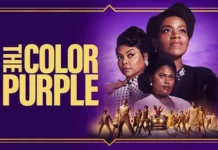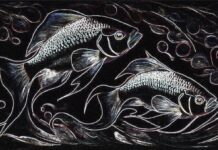As a poet, I think the most valuable thing we can lose in this life is a poem. A poem that comes from our deepest, most authentic self. As a person with lived experience of mental distress and involuntary psychiatric treatment, I know the most powerful of these poems can live and be lost in what some people call ‘madness’.
There are times in which a poem comes to a poet and it’s light and slippery enough that it is easily lost in the bustle of life. Losing this kind of poem is not so much a tragedy. But the poems I’m speaking of are the ones not so easily lost, the ones connected to who we are. When these are lost, a piece of the poet themselves is lost, too. This is the kind of poem that can be destroyed when psychiatry treats a poet, an artist, a musician, without reverence and honor for their creativity and their diversity of mind.
I want to take a moment to honor the artwork, the songs, the paintings and the poems of the mad artists that are lost—deep in a wilderness of psychiatry’s careless disregard for the truth every poet knows—that a poem can be like a bone in one’s body, a part of a person that can sustain their life, make meaning and bring joy and healing.
I lost a poem once, and I mourned it for many years. But, one day my grief became a map, and with it I found my way back to the ghost of it and I brought it back.
Creativity and Psychiatry
Creativity, in a corporate or capitalist context, is considered either a coveted catalyst for innovation or a dangerous anti-conformist threat. How our creativity is perceived seems to depend on how well we can direct our talents towards someone else’s goal of profit. Often, this does not align with the artist’s own benefit, and even less often with a long-range social benefit. Moreover, it can be hard to differentiate between another’s goals and our own when they overlap so subtly with our survival.
In the context of psychiatry, if a person cannot behave/function/feel/express themselves in a way that conforms to a goal defined by someone else, or to the ever-present goal of ‘making money’, they are perceived as threatening and in need of correction rather than as innovative or creative.
In my case, the diagnostic manual showed psychiatrists just what was intolerable about my creativity, what was in the way of my ability to be a good cog in this spinning wheel. It showed them exactly what made it hard for me to hold up any of the falsity that was necessary in our modern world. And upholding falsities is a skill of utmost importance here.
Artists or not, we are all people who have something to say, something to share, something to bring to our communities. Art can be what brings us closer to each other, closer to our collective heart-centered intentions, our collective soul, and our imagination of a sustainable future. It is what helps us remember who we are, why we are here, how to care for each other, what it means to trust and to love—what it means to challenge the status quo and change processes and systems that are not working.
And yes, some artwork does live in “madness”. Some think the best ones do. And you yourself might never walk in the lands where those poems are made. But if these poems, scrawled on the walls of locked wards and inside the paralyzed minds of the forced and over-medicated are washed away, lost…who are we then? What is our story? How much true medicine have we lost, the kind of medicine a poem brings?
I don’t think many psychiatrists see the true tragedy of losing a poem because modern society itself does not see it. And that is perhaps why they can watch while so much art disappears. In so many ways, beyond art, they can’t see how in psychiatric treatment we can lose the wholeness of a person by deeming one part them disappear-able.
Can we retrieve these lost poems? Can we find them again? I think learning how is one of the most important things our culture can learn to do right now. Poems don’t die, they hibernate and wait. Every poem, every painting, each and every song that has been lost can be found.
How a Poem Is Lost
Growing up with a mother and a grandmother who were artists, I had an advantage of sorts in that I did have an example of how to thrive with strong, unwieldy creativity. Yet, I still lacked the kind of guidance that had been lost generations before my grandmother tried her best to thrive as a creative woman in 1940s America.
There was a time before that when we knew how not to pathologize and fear creative, altered states of mind, how to embrace intuition and dreaming, how to live alongside this kind of diversity. But this all has, in modern society, taken on a different meaning now existing only in context with psychiatry and mental illness. And as society grew more strategic in its need for hegemony, creativity began to fall solidly into the realm of a non-conformist threat. Psychiatry was in lock step. The most important question became: Can you conform? Can you produce on someone else’s terms?
I was given what advice I could have been given from this fractured storyline of the role of the artist, the role of altered states. I was given what we had from a mostly missing repository of wisdom. I was told the story that was missing a plot point, and then I was turned into the world as a sensitive, fragile intuitive without much to say for her ability to conform at all. And my creativity was pretty vast and explosive, sometimes deeply disturbing and uncontrollable. But I revered it deeply, and I knew even if it was something I had little understanding of or training in, it was something precious. I knew that.
When I ended up in a mental hospital, this very precious thing, my creativity, was lumped into one category—meaningless madness, disease. I had to learn to hate it, repress it, learn to strip it of any preciousness. And mostly I did, but still I couldn’t help but try desperately to find ways in which this madness might be different from the art I was still making, thoughts I was still thinking, the poems I was still writing. Sorting these things out became an art of its own. But it was truly exhausting.
What was disease? What was valuable creativity? All this while I knew I was missing something precious. A poem. A bone. A part of me.
How a Poem is Found
There is a basic element of taming the wildness of creativity that I feel happens as most artists mature. And I don’t mean this in a negative sense at all, as I might when speaking of creativity being oppressed or destroyed. I’m speaking of the skills I learned as I figured out how to travel into imaginational realms that often left me completely bewildered and confused, and create works of art that could communicate effectively to others. And this learning can be seen as a parallel to healing from mental distress, or what’s called ‘psychosis’.
I was only 21 when I was forced into the psychiatric world and imagination became a place I was taught to fear. I didn’t have much time to mature into an organic training/taming of my creativity, and no one was able to show me those ropes because as soon as I wandered into ‘madness’, my creativity was entirely suspect.
When I started to come off psychiatric medication, I was reintroduced to the full strength of it after almost 20 years of repressing it, trying to eradicate it even while knowing there was so much of it to save. I remember it feeling so much stronger than even when I was young.
This was the beginning of my journey back to find what had been lost. It was a poem, yes, but so much more than that in the end.
How do you find a lost poem? How do you even begin? How do you stitch it back into being?
Few understand the terrors I waded through to find that poem again. When I started to see in that vivid way I had before psychiatry, before the drugs dulled the intensity of images and voices that came to me, before I dulled them myself by internalizing the fear and judgment of them as bad and to be ignored and irradicated–I remember the terror. I would lay down at night and images completely disconnected from the context of my life would flash almost nonstop through my imagination. Some of these images would be extremely detailed and frightening.
As I started to rediscover the creative source inside me, unhindered, loved again, held precious again, I found a way to detach a bit from these sometimes horrifying images by looking at them as works of art, sometimes even marveling at their creativity. And sometimes an image that was so curious, so outside of things, would appear. And I would wake up with it in my consciousness still. It might have been a dream, a face, a phrase–and suddenly I found myself hunting for its meaning.
My grief for all the lost things had started to become a map. And I was no longer so afraid to follow it.
A story was starting to be told inside me…a poem was being stitched together from its fragments–an old poem, the one poem I felt I was meant to put on the page–the one that I had lost all those years ago on a tile floor in a solitary cell. Nights became journeys; as I closed my eyes, I prepared myself for the wild ride of dreaming, hoping to wake with some information to bring my curiosity and motivation into the next day–a flash of an image I would draw, a poem.
And then one night the poem came back to me. The one that was buried under the weight of the collective carelessness with my creativity. The one I metaphorically scrawled on the walls and was washed away, when I was given nothing to understand my experiences other than disease. And as I wrote it down on a small pad by my pillow, I was starting to remember me.
I saved the poem. I had smuggled it in the marrow of my bones through the violence of all those years. The despair, the pain. It waited for me.
A WOMAN, A WOLF, AND A WHALE
As the land is set ablaze,
And the people’s souls are aflame—
We lay awake at night,
Listening for a song of peace,
A song of grief—
So we can finally weep for what we lost,
For what we forgot.
But, the only sound is the roaring of the sea at the edge of everything.
Underneath the Water,
The Whale sings for healing.
She knows that the Fire only eats the Air,
But she and the Water are one.
She knows her song is filled with sorrow.
And she knows its purpose and its power.
Somewhere a Wolf sings to the moon of Hecate,
Calling on the leaders of the lost.
She knows her song is one of solitude,
She knows she will always vie for life,
And never be sacrificed.
She knows there is no disguise of harm clever enough to make her an offering.
And she knows her purpose and her power.
Somewhere at the edge of Dreams,
A woman smiles at Christ’s Cross,
She sits on one arm of it swinging her feet,
While her ancestors dance below to the beat.
She knows her people have nowhere to put their sins these days,
No coin, or priest—
Not even in the bodies of their brothers,
Or the wombs of their daughters,
Or tossed into the void of Death.
No, they must tend to it themselves,
And use Songs like magic again.
A Woman, a Wolf or a Whale,
Who knows the purpose and the power of her voice—
Can only put it to use.
After this poem clawed its way home to me, more and more poems started coming. Over the next few years, all the poetry that came to me felt like a celebration and a reunion with myself that began just with finding my way back to that one poem I lost.
For All the Lost Poems
In many ways not even the artists, poets, musicians themselves know what the true impact of their work might be. A poem, an artwork, a song, goes into the world, even on the back of a napkin or diner receipt and does just what it’s meant to do, on small scales or large ones, despite any expectations or hopes on the creator’s part. But one thing the poet knows beyond all doubt is the preciousness of the poem itself.
Let’s take a moment today to mourn all the lost poems, the disappeared art. A moment to recognize the erasure of creativity by careless psychiatric treatment. Let’s take a moment to think of it now. Let’s think of the generations of poems we’ve lost. Generations of stories and songs. Let’s think, just for a moment, about just what that means for everyone.















The whole of the internet is a massive prickly nitpicky thorn bush and if you venture anywhere near it you get ensnared and entrapped in its nasty thorns, and then if you try to move you snarl up even tighter in the mesh until all it causes you PAIN PAIN PAIN.
A poem on a thorn bush attracts other poets to get hooked and wound up and wound in and stuck there bleeding.
Some say a poem is not a poem until it has an audience. I say a poem is a kind of prayer to creation. No prayer needs an audience or a thornbush to pin it to.
If you pray to an audience it is no longer your prayer. You feel it only vicariously though the nodding vote of the thorny briars.
If you want to FEEL your own poems as if they are your prayers and as if you are creation’s vital prayer to creation speak your poems to your huddled chest not the nasty maelstrom of bickering thorns.
What is coming to pass is a time of recognition that SILENCE IS THE ANSWER to the outstretched, brutal, invasive thorn bush.
Report comment
Everyone’s life is a poem, with or without words.
Report comment
Karin,
I loved reading your poem. It’s very evocative, especially with images of wild creatures singing from their souls: “The Whale sings for healing…”, and the Wolf, “She knows her song is one of solitude…”.
Please keep singing your songs of poetry. And I love your tattoo.
Birdsong
Report comment
Thanks!
Report comment
You are a talented poet. I was told by the moderators at schizophrenia.com my poems were “word salad” and symptoms of mental illness, then they deleted them from the ‘creativity’ section. I kept posting poems that I wrote, in the ‘creativity’ section of their forums , until they banned me from their forums. I now have my own web site and have published around a hundred poems in an Ebook aptly titled “Wordsaladgisms” 🙂
Report comment
Steven, that is so wonderful to hear 🙂 Good on you for persevering through that kind of judgmental exclusion.
Report comment
Dear Mrs Karin ,
I hope you’re fine and doing well. I lost a poem when I was in ninth grade 2018. I forgot to keep a copy of it ‘its name is Nazareth’. I wrote it on my own words for an English assignment.
Can you please give me any advice to help me remember my poem.
Regards,
Report comment
Hi Suzan,
I’d say spend some time looking inward and validating all those experiences you had in 9th grade. Remember who you where then and all the ways you may have been told not to be yourself, then find a path back to the 9th grade you – show her how much you appreciate her writing that poem by honoring the value of your words. Let her have some space in your journals, let her speak a bit. I think after a bit, the poem will come back, it may not be the exact poem, but maybe with the loving guidance you have for your younger self as a worthy poet and person, you may just write the version of the poem that you need right now. And don’t forget to take good care of yourself while you do it, and get support where you need it – if things feel overwhelming.
Lots of luck!
Karin
Report comment